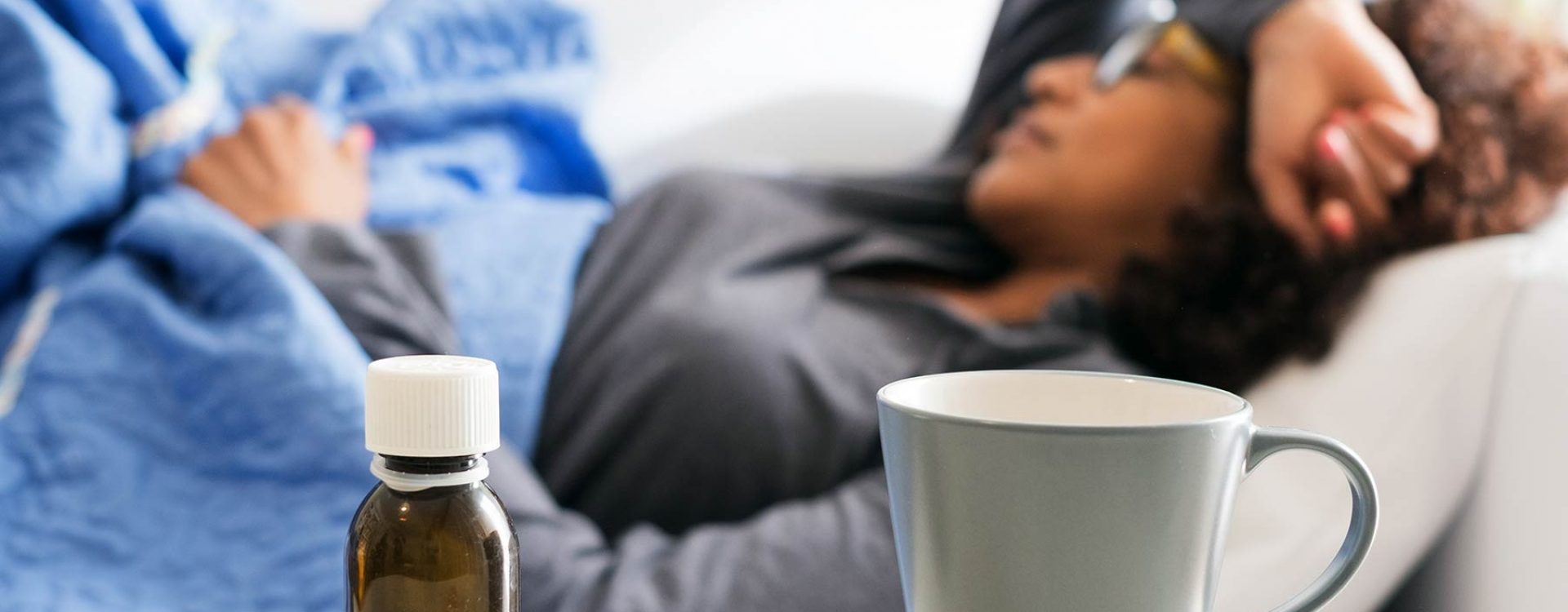At this point, it is common that many of us have known someone who has had to be hospitalized for COVID-19. However, it’s important to know that there are many instances when people who’ve gotten the virus do not end up in the hospital. Both individuals who are fully vaccinated or unvaccinated who may contract the virus usually manage just fine from home.
Folks who get the virus can have very different symptoms than someone else whose contracted COVID. Thankfully, there are some remedies (prescription and over-the-counter) that can help manage the most common and problematic symptoms brought on by COVID.
Although, I do want to stress that if you feel like what you have may be COVID, whether you are vaccinated or not, it is important that you get tested. There are numerous testing sites throughout our community including Pardee Urgent Care locations.
If you continue to have trouble breathing, persistent pain or pressure in the chest, persistent fevers, an inability to maintain proper food and liquid intake, or other severe symptoms please call 911 or get to an Emergency Department as soon as possible.
Treating COVID-19 Symptoms at Home
Exhaustion. Our body needs time to recover from whatever virus it is battling. Get as much sleep as possible to help your immune system fight off the infection. Drinking plenty of fluids is important to prevent dehydration. Make sure to avoid sugary drinks.
Pain and fever. Tylenol does a good job at relieving pain and controlling a fever. You may take 500 mg every 4-6 hours as needed.
Congestion and cough. A cough and mucus buildup is common with COVID. I recommend using Mucinex DM and/or cough drops to help relieve a stuffy nose and/or persistent cough. Mucinex DM contains an additional drug called dextromethorphan. This drug helps control your cough by affecting signals in your brain that trigger your cough reflex, which in turn lessens your coughing. Another option may be Robitussin DM. You can take 20mL three times daily for seven days for cough symptoms. It works by thinning and loosening mucus in the airways, clearing congestion, and making breathing easier. Do not take these together. In general, it is best to choose one cough suppressant and stick with it and avoid mixing the two options offered here.
Breathing trouble. You can ask your primary care doctor about prescribing anAlbuterol inhaler. This is used to treat difficulty breathing, wheezing, shortness of breath, coughing, and chest tightness. The inhaler is often used three times daily and scheduled for seven days. If you are experiencing difficulty breathing that does not subside with use of medication, dial 911 or get to an Emergency Department as soon as possible.
Nausea and dizziness. Dramamine or Emetrol can help withnausea or if you become dizzy.
Sore throat. If your throat hurts, I suggest using Chloraseptic spray (or other products containing menthol/phenol) and/or Cepacol lozenges. Cepacol lozenges contain benzocaine, which is a local anesthetic that works by numbing the painful area and is likely safer to use as a lozenge versus spray.
Red eyes. Saline eye drops keep your eyes wet, helping to relieve red eyes that itch or burn.
Diarrhea. In the absence of bloody or dark stools, I suggest using Imodium (loperamide) for diarrhea. Imodium works by slowing down the movement of the gut. This decreases the number of bowel movements and makes the stool less watery.
Medications to Avoid When Treating COVID-19 at Home
There has been a lot of information circling about other treatments for COVID infection that just is not true. I want to emphasize the importance in avoiding prescription medications which are not approved to treat COVID-19, including the following (based on current National Institutes of Health (NIH) and the Centers for Disease Control and Prevention (CDC) guidelines and the lack of adequate data supporting):
- Ivermectin
- Azithromycin or other antibiotics
- Steroids like dexamethasone or prednisone. While these may improve your outcome in the event that you are hospitalized and require supplemental oxygen, they may increase your risk for poor outcome, even death, when used outside of the hospital in the absence of the need for oxygen.
Please get tested if you suspect that you have COVID-19 before you begin any of the at-home recommendations offered here. To find a testing site near you, please visit ww.ncdhhs.gov/GetTested or pardeeurgentcare.com





